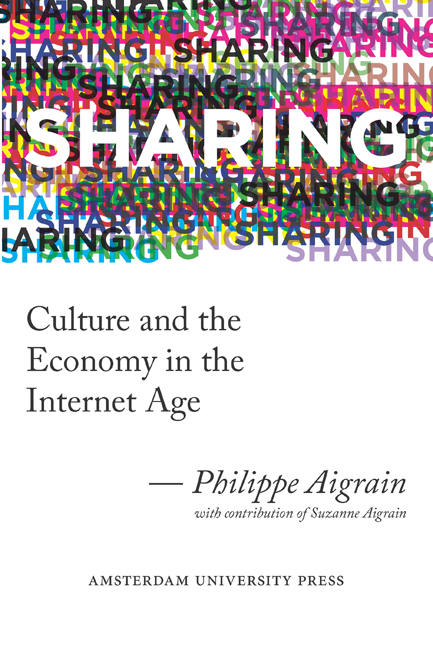B - The Total Cost of Rewards and their Distribution
Published online by Cambridge University Press: 19 January 2021
Summary
The model used in chapter 7
Evolution of the distribution of attention
In chapter 7, we attempted to describe the compound result of the autonomous development of an Internet-native culture production and of the continued usage of the Internet as a distribution medium for media publishing. The interaction of these factors leads to a popularity distribution for creators (beneficiaries of the Creative Contribution), which is the basis for our model.
To explain what we mean by “popularity distribution for creators”, we need to define a few quantities. If each work wj has popularity pop(wj), and the relative contribution of a given creator ci to wj is contrib (ci;wj), the total popularity1 for a given creator is:
For example, if creator A contributed 50% of work w1, 25% of work w2 and 60% of work w3, the popularity of A is:
The popularity distribution for creators is the distribution of pop(ci): it determines the distribution of the rewards. We will speak equivalently of usage distribution, because our measurement system collects usage clues (see appendix C).
A number of heterogeneous factors (such as classical media publishing and unauthorized file sharing) already interact to drive the attention devoted to various productions. This interaction will be stronger once the Creative Contribution is put in place and file sharing is recognized as a legitimate activity. It will result – as it already does – in attention patterns (i.e. popularity distributions) that do not formally follow Zipf's law but are often closely approximated by it. We will discuss below the impact of this possible divergence, but for the time being, let us accept modeling the reported usage pattern by a Zipf law and consider only how the associated parameter – and thus the diversity of usage – will vary. Note that actual rewards will be distributed according to the observed distribution, not the model: this model is used only to determine the overall amount of rewards, i.e. to set a global scale factor. To do this, we will assume that the input to the reward system will be a Zipf law with parameter α. This leaves us with 3 parameters to set: the value of α, the size of the overall universe (the number of creators to be rewarded), and the minimum reward amount to be distributed.
- Type
- Chapter
- Information
- SharingCulture and the Economy in the Internet Age, pp. 193 - 198Publisher: Amsterdam University PressPrint publication year: 2012



